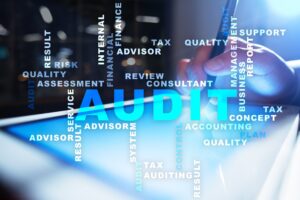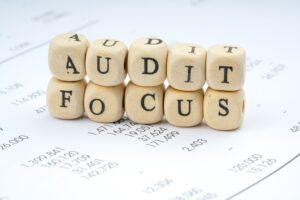Facing an IRS audit can be a daunting prospect for any taxpayer. However, adequate preparation can significantly ease the process and enhance your prospects for a favorable outcome. Whether you have already received a notice from the IRS or are proactively preparing for the possibility, knowing the proper steps to take is crucial. This guide provides ten essential actions you should take immediately to prepare for an IRS audit.
1. Understand the Scope of the Audit
The first step in preparing for an IRS audit is to understand precisely what the IRS is examining. Audits can range from straightforward requests for a few documents to more comprehensive reviews of your entire tax return. Carefully read the audit notice to identify the years and items under review. This understanding will help you gather the correct documents and also guide your preparation efforts.
2. Gather Relevant Documentation
Once you know the audit’s scope, gather all relevant documentation. This includes receipts, bills, employment documents, investment statements, and any other records supporting your tax return entries. Organize these documents by year and type, making it easier for the auditor to review them. Having thorough documentation can often speed up the audit process and resolve questions quickly.
3. Review Your Tax Returns
Before the audit, review the tax returns in question. Understand every entry you made and ensure you can justify them with documentation. If you notice any mistakes or discrepancies, be prepared to discuss them honestly with the IRS auditor. It’s often beneficial to review these returns with a tax professional who can provide insight and advice on potential issues.
4. Consult a Tax Professional
Consulting with a tax advisor or accountant experienced in handling IRS audits can provide significant advantages. A tax professional can help you understand your rights, prepare your documentation, and even represent you during meetings with the IRS. Their expertise can be invaluable, especially if the audit is complex.
5. Know Your Rights
Every taxpayer has rights under the IRS Audit process, including the right to privacy and courteous treatment. Familiarize yourself with the Taxpayer Bill of Rights and the specific procedures involved in an IRS audit. Knowing what the IRS can and cannot do can help you navigate the audit more effectively.
6. Organize Your Financial Information
Having well-organized records not only simplifies your preparation but also makes a positive impression on the auditor. Use labeled folders or digital tools to keep your financial information orderly. This organization can save time during the audit process and help prevent the oversight of essential documents.
7. Prepare Your Mindset
Approach the IRS audit with a calm and cooperative attitude. Being defensive or antagonistic can complicate the process. Instead, aim to be polite and professional, remembering that the auditor is performing their job. A positive attitude can lead to a more constructive interaction. Additionally, staying composed will help you think clearly and respond accurately to the auditor’s questions, ultimately benefiting the overall process.
8. Plan for the Meeting
Whether your audit is in-person or through correspondence, plan how you will handle the audit session. If meeting in person, decide on the location, whether at an IRS office, your home, or your accountant’s office. Make sure you understand the format of the audit meeting and what will be expected of you.
9. Practice Transparency
During the audit, be transparent and forthcoming with information. If you’re unsure about a question, it’s okay to say you don’t know and that you will get back with the information. Honesty is crucial, as misleading the auditor can lead to more severe penalties.
10. Follow Up
After the audit, follow up on any pending items and comply with any agreements or arrangements made with the IRS. Keep copies of all correspondence and any contracts you sign. This will help protect your interests and ensure compliance.
Preparing for an IRS Audit Helps Things Go Smoothly
Preparing for an IRS audit might seem overwhelming, but these steps can make the process manageable and less stressful. By understanding the audit, organizing your documents, consulting with professionals, and maintaining a cooperative attitude, you can navigate the audit more effectively and with confidence. Remember, preparation is key to successfully handling an IRS audit.
Read More:
Navigating the IRS Hardship Program Application Process
Ditch the Debt: 8 Unconventional Tips to Achieve Financial Independence!
Catherine is a tech-savvy writer who has focused on the personal finance space for more than eight years. She has a Bachelor’s in Information Technology and enjoys showcasing how tech can simplify everyday personal finance tasks like budgeting, spending tracking, and planning for the future. Additionally, she’s explored the ins and outs of the world of side hustles and loves to share what she’s learned along the way. When she’s not working, you can find her relaxing at home in the Pacific Northwest with her two cats or enjoying a cup of coffee at her neighborhood cafe.














